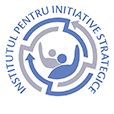#NEXT4EU in Edinet: Dialogue on improving the business and investment climate

Economic development, facilitating business activity and attracting investment is one of the key priorities announced by the Moldovan Government on its EU integration path. With a new edition of the Policy Dialogue series the NEXT4EU project team arrived in Edinet, a city that has demonstrated significant success in attracting investments from the country’s development partners.
The dialogue complemented the fulfilment of commitment 7 of the reform recommendations by the European Commission on Moldova’s membership application. Point 7.1.2. foresees the establishment of a procedure to identify eligible public investment projects and expand the coverage of the existing public investment management framework to include projects implemented from the state budget, externally funded projects, and projects funded from extrabudgetary funds.
Vlad Șuleanski, representative of the Ministry of Economy and Digitisation of the Republic of Moldova, spoke at the event about the steps the Government is taking to de-bureaucratise the business environment and the state programmes available to economic agents. Former Secretary of State at the Ministry of Agriculture, IPIS expert Tatiana Nistorica and Marin Gospodarenco, economic expert at Watchdog, spoke about the Government’s policies in the economic field.
The mayor of Edinet, Constantin Cojocaru, representatives of the District Council and mayors of other villages in the region came with examples of good practices for accelerating economic development at local level, which can be replicated in other regions of the country.
Previous editions of the NEXT4EU Policy Dialogue were held in Chisinau, Cahul and Ungheni. They discussed the implementation of the European Commission’s nine reform recommendations; the role of civil society in monitoring the EU integration process; the progress and challenges of public administration reform; violence prevention and respect for human rights.
The project “#NEXT4EU – Young Generation for EU Integration in Moldova” is implemented by the Institut für Europäische Politik, in partnership with the Institute for Strategic Initiatives (IPIS) and the Institute for European Policies and Reforms (IPRE), with the support of the Federal Foreign Office of Germany.








 Română
Română Русский
Русский